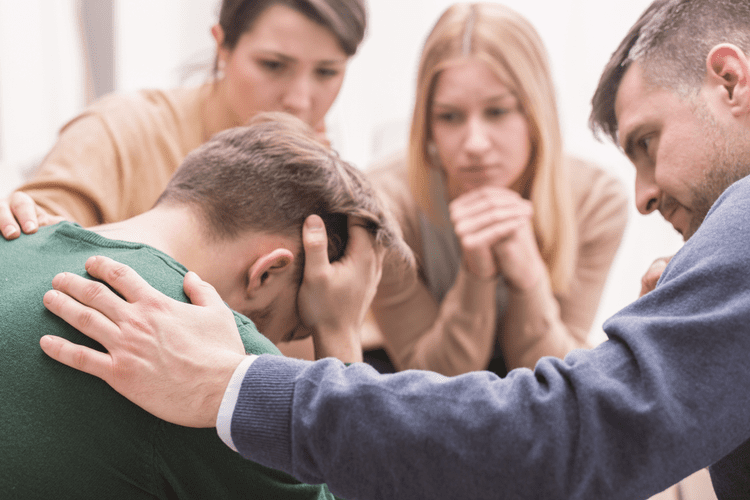Perfil
- Cidade: Ribeirão Preto - SP
- Eu Sou:
Ao ligar diz ter me visto no site Guia Sexy.
Apresentação:
Content The day after and long-term effects of alcohol Alcohol interferes with exercise’s benefits for sleep For Better Sleep, Set a Cutoff Time for Alcohol Alcohol disrupts REM sleep Alcohol and Insomnia 1 Alcoholism: Sleep EEG Data No one is saying your favorite wine or cocktail doesn’t have a relaxing effect. It’s classified as a central nervous system depressant because it slows brain function, mostly via gamma-aminobutyric acid , a neurotransmitter that produces a calming effect. As alcohol increases GABA activity in the brain, you may start to feel sleepy. The perpetual use of alcohol as a sleep aid may be a counterproductive long-term strategy as alcohol disrupts sleep quality and intensifies the need to consume more alcohol8. Verywell Health uses only high-quality sources, including peer-reviewed studies, to support the facts within our articles. This is particularly true for elderly adults because drinking produces higher levels of alcohol in their blood and brain compared to younger drinkers. We talked to the study’s lead author, Mahesh Thakkar, Ph.D., professor and director of research at the MU School of Medicine’s Department of Neurology, to learn more about how alcohol might influence sleep quality. Unsurprisingly, studies of people with insomnia have also found that heavy alcohol use exacerbates insomnia. People who wake up feeling unrefreshed may be more likely to rely on alcohol again to help them sleep the next night, leading to a counterproductive pattern of alcohol use. Alcohol increases levels of adenosine, a key component of the homeostatic drive. The homeostatic drive is responsible for keeping our body balanced, and it’s one of the major mechanisms that regulates the sleep-wake cycle. The homeostatic drive prompts sleep by boosting levels of adenosine when we’ve been awake for too long. Gann H, Feige B, Hohagen F, van Calker D, Geiss D, Dieter R. Sleep and the cholinergic rapid eye movement sleep induction test in patients with primary alcohol dependence. Ely M, Hardy R, Longford NT, Wadsworth ME. Gender differences in the relationship between alcohol consumption and drink problems are largely accounted for by body water. The day after and long-term effects of alcohol This can worsen OSA symptoms and lead to disruptive breathing episodes and heavier snoring. As they continue to drink, their sleep patterns soon become disrupted again. The idea that alcohol consumption improves sleep is, in reality, only a myth. Roughly 35% to 70% of people who suffer from alcohol use disorder — a medical diagnosis for varying degrees of alcohol problems or dependence — report having insomnia or trouble sleeping. One of the most alarming effects of alcohol involves babies born to mothers who are alcoholics or heavy drinkers during pregnancy. Newborn sleep disruption was one of the first problems studied by researchers investigating fetal alcohol syndrome in the 1970s. Then, as withdrawal from the drug or alcohol occurs there’s a big sleep-wake reversal which then needs to be addressed. You may also experienceparasomniaswhich are disruptive sleep disorders that occur in specific stages of sleep or in sleep-wake transitions. Alcohol interferes with exercise’s benefits for sleep This means the excitatory nerve cells in your brain are suppressed, so you fall asleep. As your body metabolizes the alcohol, the excitatory nerves rebound. You can note down your bedtime, what time you woke up in the morning, any times you woke up during the night, if you needed to go to the bathroom during the night, and anything unusual you remember about that night’s sleep. Research suggests alcohol consumption increases the risk of sleep apnea by 25%. It’s true that alcohol acts like a sedative but it disrupts your sleep by creating an imbalance between SWS and REM sleep , thus decreasing sleep quality and perpetuating sleep deprivation as a result. On average, it takes an hour to process a unit, but this can differ widely from person to another. Verywell Health’s content is for informational and educational purposes only. In this population based setting, drinking high volumes of alcohol or drinking hazardously may contribute to the prevalence of sleep problems in older age. Those with disrupted sleep should consider reducing alcohol consumption and people in this age group, particularly men, should be discouraged from using alcohol as a sleep aid. It is well recognized that sleep problems have a significant impact on quality of life with increased morbidity and mortality seen in population studies3. Identifying people at risk of sleep disturbances as a result of their drinking may have important public health benefits. For Better Sleep, Set a Cutoff Time for Alcohol Harper C, Kril JJ. Patterns of neuronal loss in the cerebral cortex in chronic alcoholic patients. Crowley KE, Trinder J, Colrain IM. An examination of evoked K-complex amplitude and frequency of occurrence in the elderly. When alcohol functions like a sedative, making you feel sleepy, drowsy and getting you to fall asleep faster – is it still considered bad for sleep? During the years 2019, 2020 and 2021, Sleep Cycle’s sleep survey users on average tagged alcohol in their sleep notes around 2.5 percent of their total number of sleeps. This may allow you to fall asleep more quickly, however it can greatly impact your sleep quality. The P2, N350 and P900 components measured at Cz showed no group differences for amplitude or latency. Once a threshold level of activation is reached in the REM-off cells, they become dominant. This change in routine can snowball into other areas of the day, leading to less anxiety, a higher level of focus and motivation, and generally more happiness. The ultimate result is often a refocus on high-quality sleep over almost everything else. And to maximize great sleep, planning for dry days throughout alcohol and sleep the week becomes a top priority. Alcohol decreases one’s muscle tone, including the tissue in the airways. This can make things like sleep apnea and snoring significantly worse. Sleep apnea is a condition that causes one’s breathing to stop and start during sleep, and there are three different types.
No one is saying your favorite wine or cocktail doesn’t have a relaxing effect. It’s classified as a central nervous system depressant because it slows brain function, mostly via gamma-aminobutyric acid , a neurotransmitter that produces a calming effect. As alcohol increases GABA activity in the brain, you may start to feel sleepy.
- The perpetual use of alcohol as a sleep aid may be a counterproductive long-term strategy as alcohol disrupts sleep quality and intensifies the need to consume more alcohol8.
- Verywell Health uses only high-quality sources, including peer-reviewed studies, to support the facts within our articles.
- This is particularly true for elderly adults because drinking produces higher levels of alcohol in their blood and brain compared to younger drinkers.
- We talked to the study’s lead author, Mahesh Thakkar, Ph.D., professor and director of research at the MU School of Medicine’s Department of Neurology, to learn more about how alcohol might influence sleep quality.
Unsurprisingly, studies of people with insomnia have also found that heavy alcohol use exacerbates insomnia. People who wake up feeling unrefreshed may be more likely to rely on alcohol again to help them sleep the next night, leading to a counterproductive pattern of alcohol use. Alcohol increases levels of adenosine, a key component of the homeostatic drive. The homeostatic drive is responsible for keeping our body balanced, and it’s one of the major mechanisms that regulates the sleep-wake cycle. The homeostatic drive prompts sleep by boosting levels of adenosine when we’ve been awake for too long. Gann H, Feige B, Hohagen F, van Calker D, Geiss D, Dieter R. Sleep and the cholinergic rapid eye movement sleep induction test in patients with primary alcohol dependence. Ely M, Hardy R, Longford NT, Wadsworth ME. Gender differences in the relationship between alcohol consumption and drink problems are largely accounted for by body water.
The day after and long-term effects of alcohol
This can worsen OSA symptoms and lead to disruptive breathing episodes and heavier snoring. As they continue to drink, their sleep patterns soon become disrupted again. The idea that alcohol consumption improves sleep is, in reality, only a myth. Roughly 35% to 70% of people who suffer from alcohol use disorder — a medical diagnosis for varying degrees of alcohol problems or dependence — report having insomnia or trouble sleeping. One of the most alarming effects of alcohol involves babies born to mothers who are alcoholics or heavy drinkers during pregnancy. Newborn sleep disruption was one of the first problems studied by researchers investigating fetal alcohol syndrome in the 1970s.

Then, as withdrawal from the drug or alcohol occurs there’s a big sleep-wake reversal which then needs to be addressed. You may also experienceparasomniaswhich are disruptive sleep disorders that occur in specific stages of sleep or in sleep-wake transitions.
Alcohol interferes with exercise’s benefits for sleep
This means the excitatory nerve cells in your brain are suppressed, so you fall asleep. As your body metabolizes the alcohol, the excitatory nerves rebound.
- You can note down your bedtime, what time you woke up in the morning, any times you woke up during the night, if you needed to go to the bathroom during the night, and anything unusual you remember about that night’s sleep.
- Research suggests alcohol consumption increases the risk of sleep apnea by 25%.
- It’s true that alcohol acts like a sedative but it disrupts your sleep by creating an imbalance between SWS and REM sleep , thus decreasing sleep quality and perpetuating sleep deprivation as a result.
- On average, it takes an hour to process a unit, but this can differ widely from person to another.
- Verywell Health’s content is for informational and educational purposes only.
In this population based setting, drinking high volumes of alcohol or drinking hazardously may contribute to the prevalence of sleep problems in older age. Those with disrupted sleep should consider reducing alcohol consumption and people in this age group, particularly men, should be discouraged from using alcohol as a sleep aid. It is well recognized that sleep problems have a significant impact on quality of life with increased morbidity and mortality seen in population studies3. Identifying people at risk of sleep disturbances as a result of their drinking may have important public health benefits.
For Better Sleep, Set a Cutoff Time for Alcohol
Harper C, Kril JJ. Patterns of neuronal loss in the cerebral cortex in chronic alcoholic patients. Crowley KE, Trinder J, Colrain IM. An examination of evoked K-complex amplitude and frequency of occurrence in the elderly.
- When alcohol functions like a sedative, making you feel sleepy, drowsy and getting you to fall asleep faster – is it still considered bad for sleep?
- During the years 2019, 2020 and 2021, Sleep Cycle’s sleep survey users on average tagged alcohol in their sleep notes around 2.5 percent of their total number of sleeps.
- This may allow you to fall asleep more quickly, however it can greatly impact your sleep quality.
- The P2, N350 and P900 components measured at Cz showed no group differences for amplitude or latency.
- Once a threshold level of activation is reached in the REM-off cells, they become dominant.
This change in routine can snowball into other areas of the day, leading to less anxiety, a higher level of focus and motivation, and generally more happiness. The ultimate result is often a refocus on high-quality sleep over almost everything else. And to maximize great sleep, planning for dry days throughout alcohol and sleep the week becomes a top priority. Alcohol decreases one’s muscle tone, including the tissue in the airways. This can make things like sleep apnea and snoring significantly worse. Sleep apnea is a condition that causes one’s breathing to stop and start during sleep, and there are three different types.


